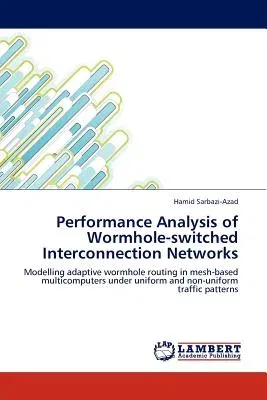Hamid Sarbazi-Azad
(Author)Performance Analysis of Wormhole-switched Interconnection NetworksPaperback, 20 July 2011

Qty
1
Turbo
Ships in 2 - 3 days
In Stock
Free Delivery
Cash on Delivery
15 Days
Free Returns
Secure Checkout
Print Length
216 pages
Language
English
Publisher
LAP Lambert Academic Publishing
Date Published
20 Jul 2011
ISBN-10
3838369394
ISBN-13
9783838369396
Description
Product Details
Author:
Book Format:
Paperback
Country of Origin:
US
Date Published:
20 July 2011
Dimensions:
22.86 x
15.24 x
1.24 cm
ISBN-10:
3838369394
ISBN-13:
9783838369396
Language:
English
Location:
Saarbrucken
Pages:
216
Publisher:
Weight:
322.05 gm

